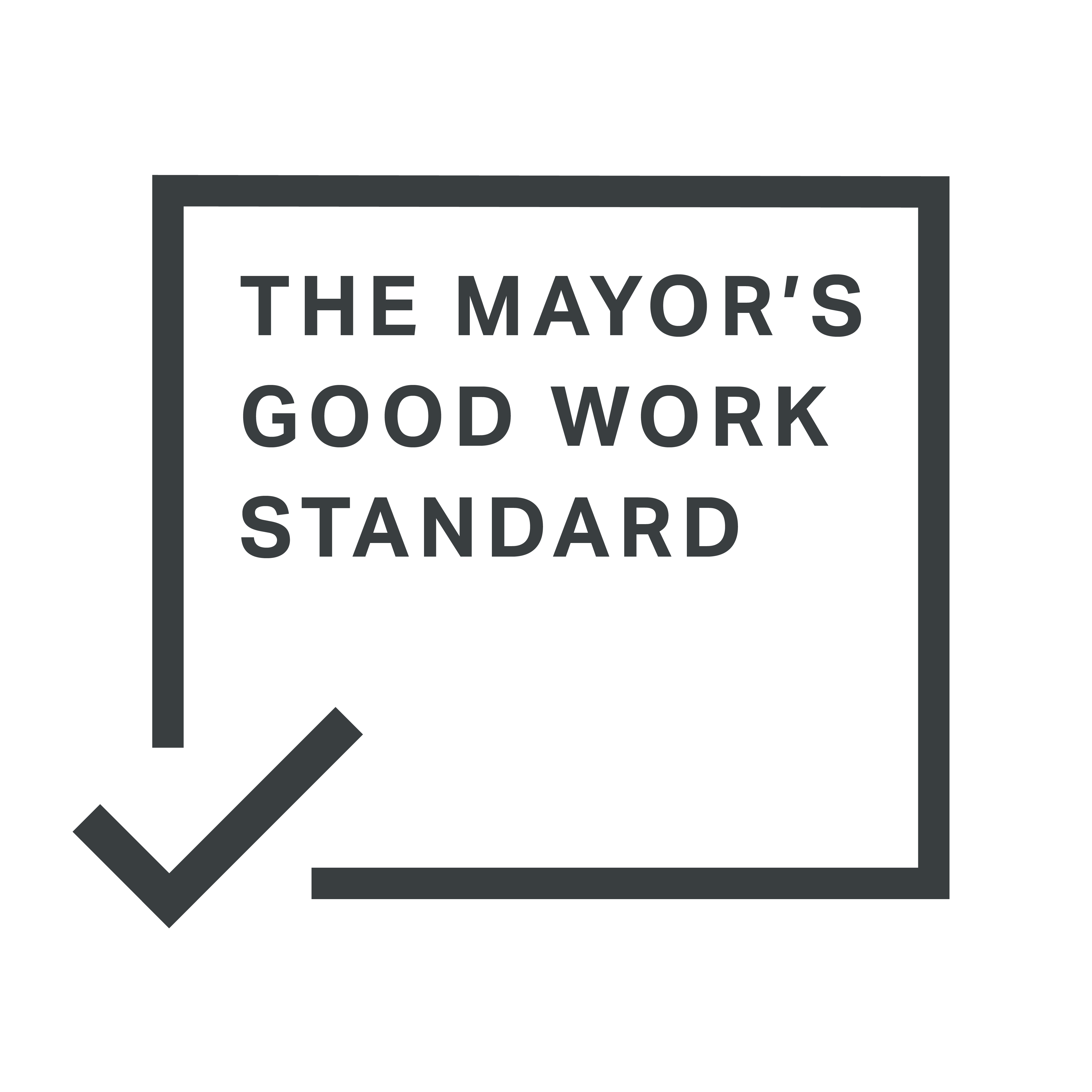15 March 2023
Transport watchdog London TravelWatch today (Wednesday 15 March) publishes a report revealing that many Londoners are being left behind by digital technology.
1 in 6 people in London say they are unable to buy a ticket as they can’t use or don’t have access to a smartphone or internet connection – the equivalent of more than 1.5 million Londoners.
A further 1 in 5 Londoners said that they have paid more for travel because they are not able to buy tickets online or by using mobile apps. The impact of this is particularly significant, given the current cost of living crisis, with rocketing utility bills and food prices.
These ‘left behind Londoners’ feel cut off from using public transport because they are digitally excluded or disadvantaged.*
Compared to Londoners overall, they are typically older (55+), more likely to be Disabled people and have a lower income. These characteristics often overlap, creating multiple barriers for Londoners who just want to get around the capital freely.
Michael Roberts, Chief Executive of London TravelWatch, said:
Many Disabled and older Londoners have embraced new technologies in recent years, making it easier to get around the capital. But our research shows that a digital-first transport network disadvantages some of our most vulnerable citizens.
A one-size-fits-all approach by transport providers does not work for a large section of London’s population. That can’t be right and it’s why we’re calling on decision makers to provide a system that is accessible, affordable and inclusive.
We want transport operators to step up by pledging to keep prices the same across all platforms – nobody should be disadvantaged financially based on how accessible the technology is.
We’re also calling for staff to be more visible and available at stations to help those who need assistance. There should be training for staff and mentoring for people who want to learn how to use different ticket options. Transport operators should commit to consult and work with digitally excluded people and communities before any new technology is introduced.
According to the research carried out for London TravelWatch:
- Only 1 in 5 digitally excluded and disadvantaged people agree that the increased use of technology (such as smart cards, websites, apps or mobile devices) has made it easier to get around London.
- Nearly 4 in 10 within that group say that the increasing use of technology in transport has actually made things harder.
- Older people (27% of those 65+), people on lower incomes (18% of the C2DE socio-economic group, or skilled working class, working class, and non-working) and Disabled people (18%) are more likely to feel this way.
- Digitally excluded and disadvantaged people have much less access to services that help them to travel around London – things like planning information tools, payment platforms and real-time info on timetable changes or journey disruption.
- Support from staff (22%) and information from ticket offices (21%) are the top two ways that digitally excluded and disadvantaged people access the help they need to get around the capital.
The research report, launched today at City Hall, calls for a number of key actions from decision makers and transport providers, including:
- Transport authorities and operators should maintain non-digital options to allow freedom of travel for digitally excluded and disadvantaged Londoners.
- Train companies and Transport for London should make sure staff are visible and in accessible locations, confident and ready to support people who need it.
- Train companies should implement a dedicated travel mentoring scheme that supports people who are digitally excluded and disadvantaged.
- Online discounts should also be available offline – no Londoner who is digitally excluded or disadvantaged should be financially penalised when they travel.
- When planning changes, transport authorities, operators and policing bodies need to work with specialists in digital inclusion to make sure information is as accessible as possible.
Caroline Stickland, CEO at Transport for All, said:
This report comes right on time for Disabled Londoners as passengers are increasingly forced to rely on digital planning and ticketing. But if the barriers to these digital options are not addressed then Disabled Londoners risk being excluded from transport completely.
This report demonstrates the urgency with which these barriers need to be tackled, as well as the ongoing importance of staff support. A “modern” transport network must be one that is accessible for all.
John McGeachy, Senior Campaigns Officer at Age UK London, said:
The world is slowly waking up to the impact of digital disadvantage but there remains a real lack of understanding about how this links to aspects of people’s lives such as the ability to access the transport network.
Good public transport can make a huge difference to quality of life, especially for older Londoners, and when there are barriers to travel, we need to have an honest conversation about who is affected and how. It is fantastic that London Travelwatch is shining a light on transport and digital exclusion in the capital. The need to act has never been more important.
Mark Evers, Chief Customer Officer at TfL said:
We welcome this report by London Travelwatch, which outlines some of the key concerns that need to be addressed across the whole transport network to ensure that customers who may not have access to computers or smartphones are catered for. We remain committed to ensuring that all our customers can get the right information at our stations and bus stops. We work with stakeholders through our Inclusive Transport Forum and disabled people through our Independent Disability Advisory Group to ensure that the needs of everyone are considered in our projects and policy development.
We also know people who are digitally excluded are those most at risk of missing out on information about concessions and affordable fare options. We are taking steps to promote affordable options to people who are digitally excluded so they can make the best choices around how to pay for travel. Our staff are also equipped and regularly trained to help everyone who needs it, and we also offer Travel mentoring and contact centre support for those not able or wanting to use digital tools.
*A digitally excluded person is somebody who either is unable to, or chooses not to, ever go online, whether using mobile data, Wi-Fi or cabled internet, on any device.
A digitally disadvantaged person is somebody who does fewer than five activities online and uses mobile data once a week or less: they may use some online services but be excluded from others.
Notes to editors
You can download the full report – ‘Left Behind Londoners: Digital Exclusion and Disadvantage in London’s Transport’ at: https://www.londontravelwatch.org.uk/campaigns/digital-exclusion/
The report includes data and graphics that you can reproduce with credit to London TravelWatch.
Follow the hashtag #DigitalExclusion.
Please send all queries to press@londontravelwatch.org.uk.








